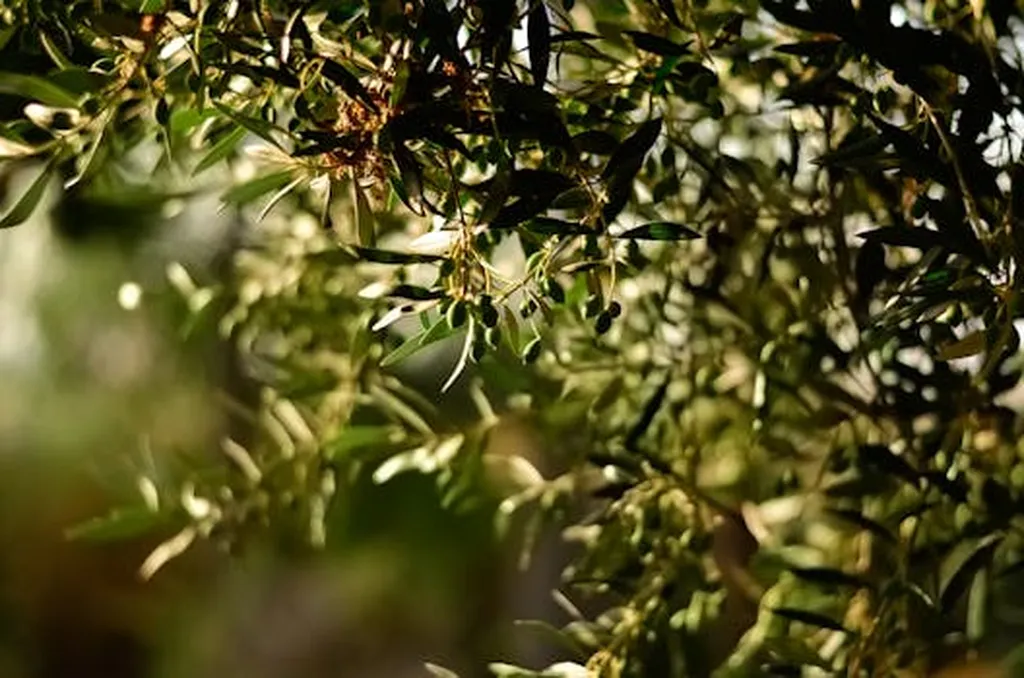In the heart of China’s olive-growing regions, where seasonal droughts have become an increasingly harsh reality, a groundbreaking study offers a glimmer of hope for farmers and agronomists alike. Published in the journal *Agronomy*, the research led by Junlin Zhou of China West Normal University delves into the intricate relationship between arbuscular mycorrhizal fungi (AMF) and elite olive cultivars, revealing a promising strategy to enhance drought resilience in one of the world’s most valuable fruit crops.
The study, which evaluated the synergy between two AMF strains—*Rhizophagus intraradices* (AMF1) and *Funneliformis mosseae* (AMF2)—and two elite olive cultivars, Arbequina and Koroneiki, under simulated arid conditions, provides compelling evidence that these symbiotic fungi can significantly bolster drought tolerance. “The results were striking,” says Zhou. “We found that the right combination of AMF and olive cultivar can not only restore key physiological functions under water stress but also enhance overall plant resilience.”
Under optimal hydration, both AMF strains colonized over 60% of the olive roots, significantly boosting biomass in both cultivars. However, the real test came when the researchers imposed a 32-day water deficit. For Arbequina, the benefits of AMF1 were particularly evident. Despite the drought, AMF1 restored photosynthesis by 18%, PSII efficiency by 37%, and water potential by 18%, while reducing lipid peroxidation—a marker of cellular damage—by a remarkable 79%. “This suggests that AMF1 can help Arbequina plants maintain their physiological functions even under severe water stress,” Zhou explains.
For Koroneiki, AMF2 proved to be the more effective partner. The strain restored water potential to 47% of pre-irrigation levels, increased root volume by 137%, and boosted PSII efficiency by 43%. It also significantly elevated levels of osmolytes and carotenoids, which play crucial roles in osmoregulation and antioxidant defense, respectively. “The combination of Koroneiki and AMF2 showed the most resilience, indicating that the specific pairing of AMF strains with olive cultivars can be a game-changer for drought-prone regions,” Zhou adds.
The study’s findings have significant implications for the agriculture sector, particularly in regions like southwest China, where climate change is exacerbating water scarcity. By leveraging the natural synergy between AMF and olive cultivars, farmers can adopt a scalable, chemical-free strategy to stabilize olive productivity. This approach not only enhances drought resilience but also promotes sustainable agriculture, reducing the need for synthetic fertilizers and pesticides.
Looking ahead, the research opens up new avenues for exploring the potential of AMF in other crops and under different environmental stresses. “This is just the beginning,” Zhou says. “The principles we’ve uncovered could be applied to a wide range of crops, paving the way for more resilient and sustainable agricultural systems.”
As the global agricultural community grapples with the challenges of climate change, the insights from this study offer a beacon of hope. By harnessing the power of natural symbioses, we can build a more resilient and sustainable future for agriculture, ensuring food security for generations to come. The research was published in *Agronomy* and led by Junlin Zhou of the College of Life Science, Environmental Science and Engineering at China West Normal University.

